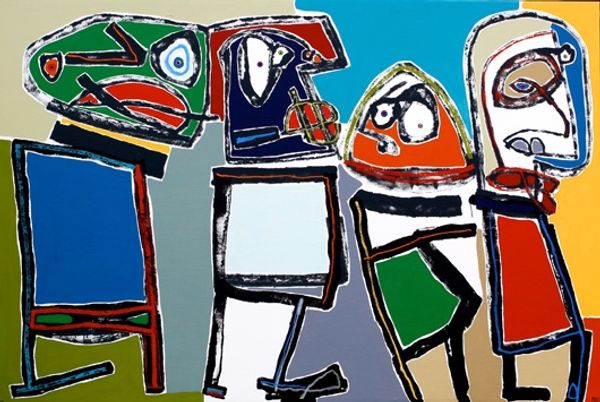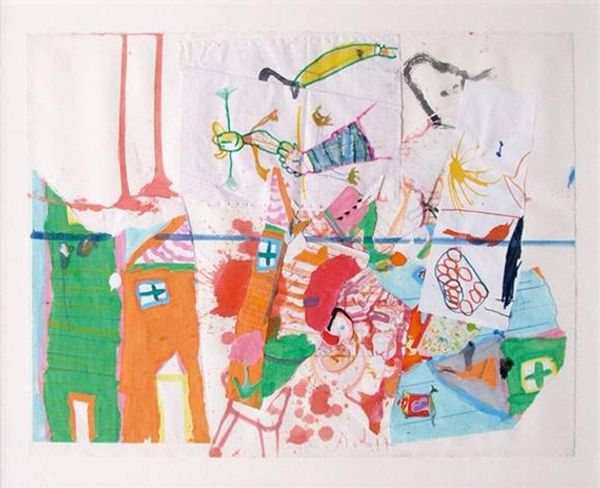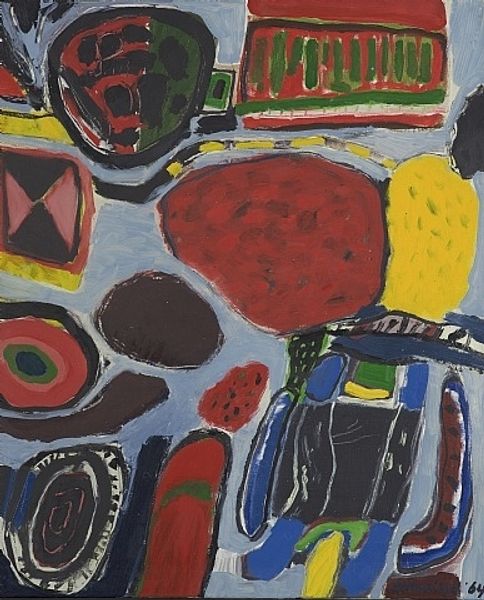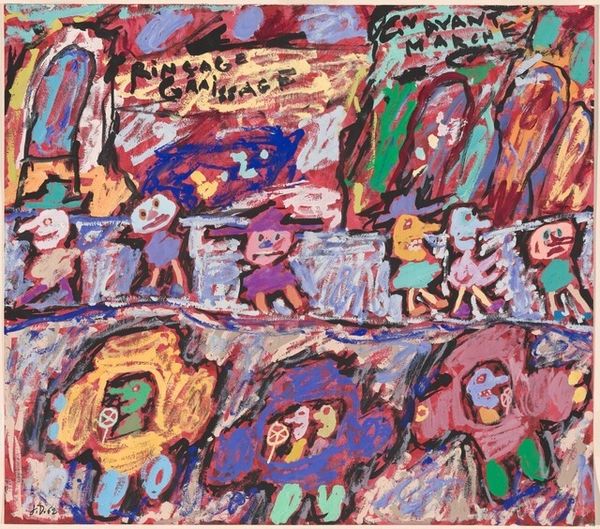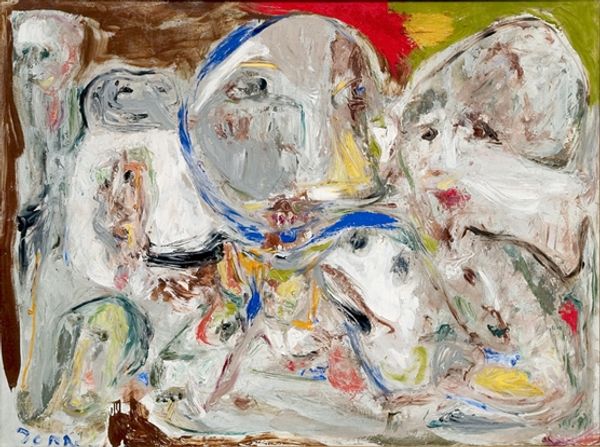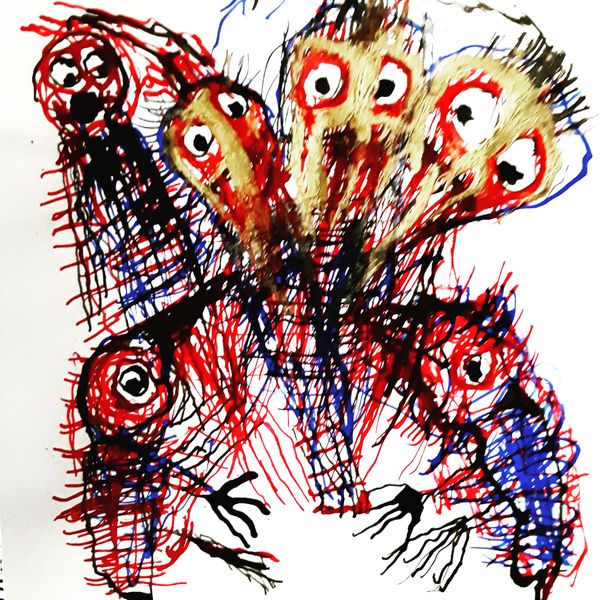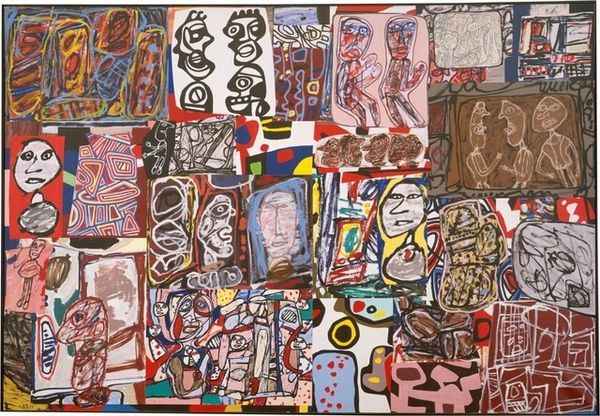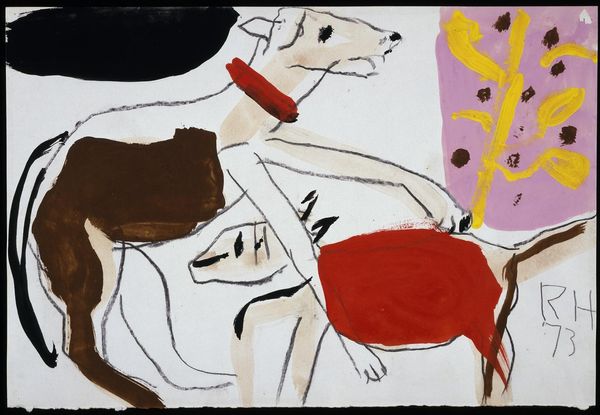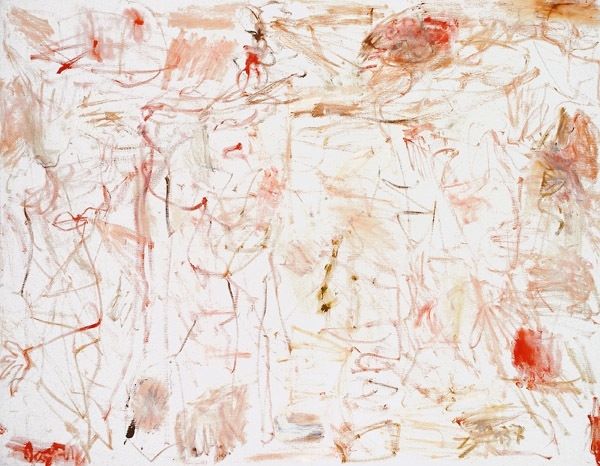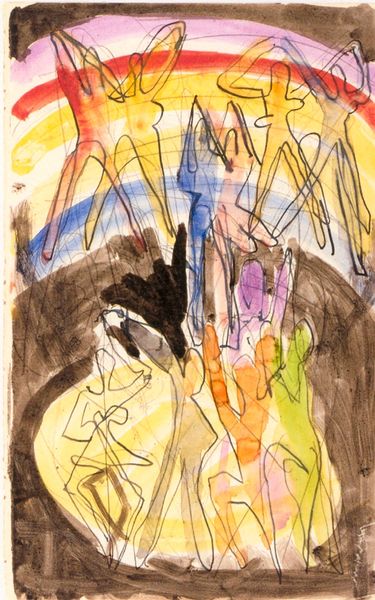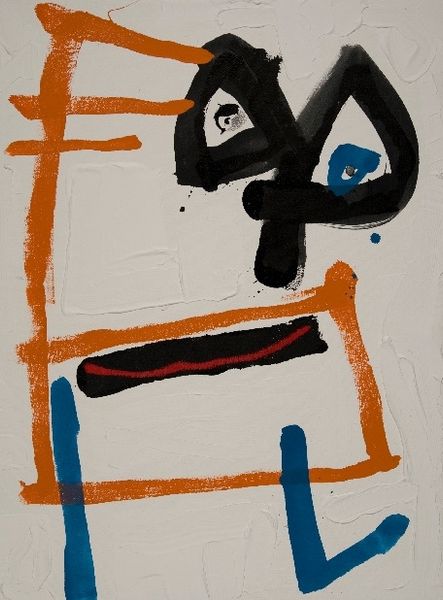
Copyright: Jean Dubuffet,Fair Use
Editor: Right, let's talk about Jean Dubuffet's "Successful Campaign" from 1975. It’s a mixed-media work, painting and collage, really densely packed. I'm immediately struck by the apparent chaos and energy, like a frenzied crowd. What do you see in this piece, beyond just the surface abstraction? Curator: It's crucial to see Dubuffet’s work in relation to the post-war social landscape. After the devastation of World War II, artists grappled with representing a world that felt broken and absurd. Dubuffet rejected traditional notions of beauty and embraced what he called "Art Brut" - raw, untutored art often made by those outside the cultural establishment. Do you see any elements here that might reflect this rejection of the established order? Editor: Well, there’s a deliberate crudeness, almost childlike. And the title, "Successful Campaign," seems ironic given the disordered composition. Is he critiquing something specific? Curator: Precisely. Think about the socio-political climate of the 1970s – a time of political unrest, failed utopian projects, and disillusionment. This “campaign” may be successful only in the sense that it perpetuates a certain type of systemic absurdity and dehumanization. What identities or power structures do you think are implicated in that critique? Editor: So, the abstraction isn’t just visual; it's a commentary on social structures? A way to depict the chaotic nature of power? Curator: Exactly. By deliberately making art that doesn’t conform to traditional aesthetics, he’s challenging the viewer to question the values of the dominant culture and the way power is represented. It forces us to look at the underbelly, the raw reality of social and political campaigns that mask themselves with false promises. Editor: I never thought about abstract art as having such a clear, pointed agenda. I thought it was just about...form. Curator: And that’s why context matters. It encourages us to critically evaluate these historical through-lines while considering whose voices are marginalized and oppressed by systemic forms of dehumanization. Editor: This has completely changed how I'll look at Dubuffet from now on, thanks!
Comments
No comments
Be the first to comment and join the conversation on the ultimate creative platform.
